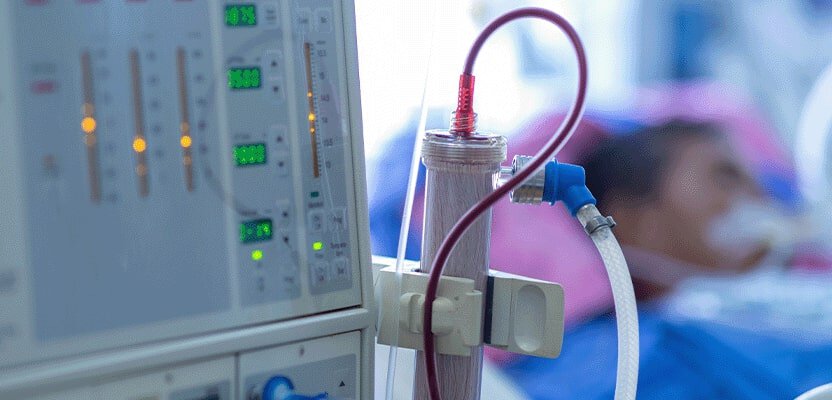+90 533 813 89 77
info@bookingforhealth.com

Kidney Transplantation or Dialysis

What is a Kidney Transplantation?
Kidney transplantation is a complicated surgical operation that involves transplanting a healthy kidney from a donor into a person with end-stage kidney disease. Kidney transplantation is a complicated surgical operation that involves transplanting a healthy kidney from a donor into a person with end-stage renal disease.
As a result of kidney transplantation, which takes place under general anesthesia and is completed in an average of 3-4 hours, the new kidney takes over the functions of the patient’s damaged kidneys and helps filter waste and excess fluids in the blood.
Kidney transplantation is typically favored for people with end-stage renal disease, a severe and permanent loss of kidney function. End-stage renal disease can be caused by a variety of conditions, such as diabetes and high blood pressure, and the condition can usually be treated with dialysis or kidney transplantation.
There are two types of transplantation: living donor transplantation and cadaveric donor transplantation. In living donor transplantation, the kidney is donated by a living person, usually a relative or close friend of the recipient. In a cadaveric donor transplant, the kidney is donated by a recently deceased person whose family has agreed to organ donation.
What is Dialysis Treatment?
Dialysis is a medical treatment that helps to filter waste and excess fluid from the blood when the kidneys are not functioning properly.
- There are Two Main Types of Dialysis: Hemodialysis and peritoneal dialysis. Haemodialysis uses a machine to filter blood outside the body. The patient’s blood is passed through an artificial kidney or dialyzer that removes excess waste and fluids. Clean blood is then returned to the patient through a vein. Peritoneal dialysis is the use of the lining of the abdomen or peritoneum as a natural filter. A special solution called dialysis solution is given into the abdomen through a small tube called a catheter. The dialysis solution absorbs waste and excess fluid from the blood and is then flushed out of the body. Peritoneal dialysis can be performed at home or in a dialysis center and does not require the use of machines.
Dialysis is usually recommended for people with kidney failure, which can be caused by various conditions such as diabetes, high blood pressure, and kidney disease. Dialysis can help prolong the life of people with kidney failure, but it is not a permanent solution and is not suitable for everyone. The healthcare professional will help to determine whether dialysis is an appropriate treatment option for the patient.

What is the Difference Between Kidney Transplantation and Dialysis?
Kidney transplantation involves surgically placing a healthy kidney from a donor into a person with kidney failure. The donated kidney takes over the functions of the damaged kidneys, and the patient’s kidneys are left in place. A kidney transplant can improve the quality of life for people with kidney failure and may allow them to live a more normal life. However, transplantation is not suitable for everyone and requires careful consideration and evaluation.
Dialysis is a treatment that helps to filter waste and excess fluid from the blood when the kidneys are not functioning properly. There are two main types of dialysis: hemodialysis and peritoneal dialysis. Hemodialysis involves using a machine to filter the blood outside of the body, while peritoneal dialysis involves using the lining of the abdomen, or peritoneum, as a natural filter. Dialysis can help to extend the life of people with kidney failure, but it is not a cure and is not suitable for everyone.
Kidney transplantation and dialysis are both options for managing kidney failure, and the most appropriate treatment will depend on the individual patient’s circumstances. Your healthcare provider can help you determine which treatment option is best for you.
Should Kidney Transplantation or Dialysis be Preferred?
The decision about whether to undergo kidney transplantation or start dialysis treatment for kidney failure should be based on several factors, including the individual patient’s medical condition, overall health, and personal preferences. Both kidney transplantation and dialysis have potential benefits and drawbacks, and the most appropriate treatment will depend on the specific circumstances of each patient.
Kidney transplantation is generally considered the preferred treatment for kidney failure because it can improve the quality of life for many people and may allow them to live a more normal life. A successful kidney transplant can also help to extend the lifespan of people with kidney failure. Factors that may influence the decision to undergo a transplant include the patient’s age, overall health, and the availability of a suitable donor kidney.
Dialysis is a treatment that can help to filter waste and excess fluid from the blood when the kidneys are not functioning properly. There are two main types of dialysis: hemodialysis and peritoneal dialysis. Dialysis can help to extend the life of people with kidney failure, but it is not a cure and is not suitable for everyone. Factors that may influence the decision to start dialysis treatment include the patient’s age, overall health, and personal preferences.



